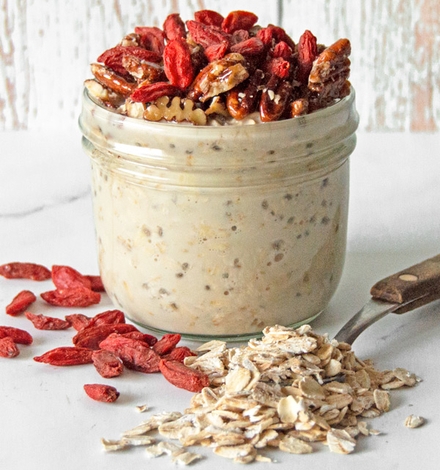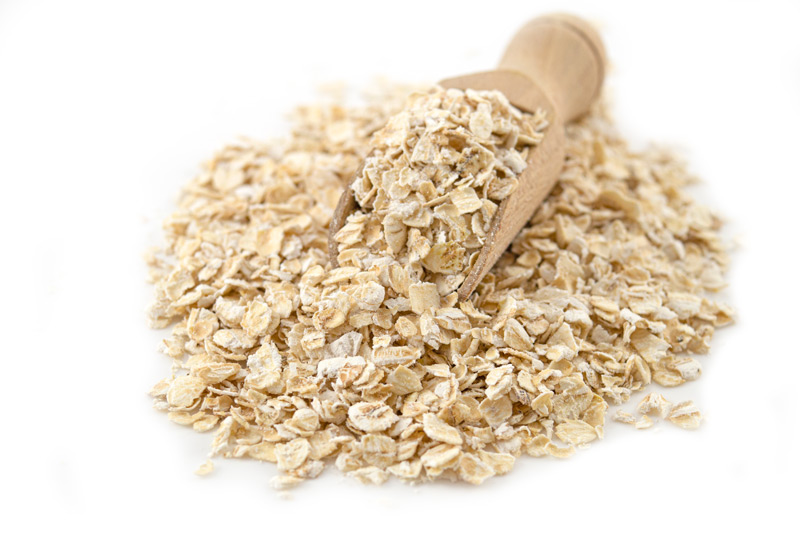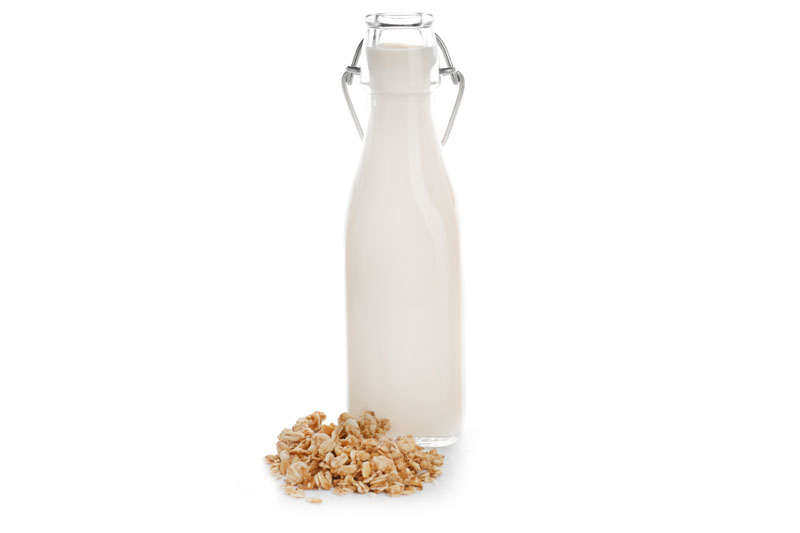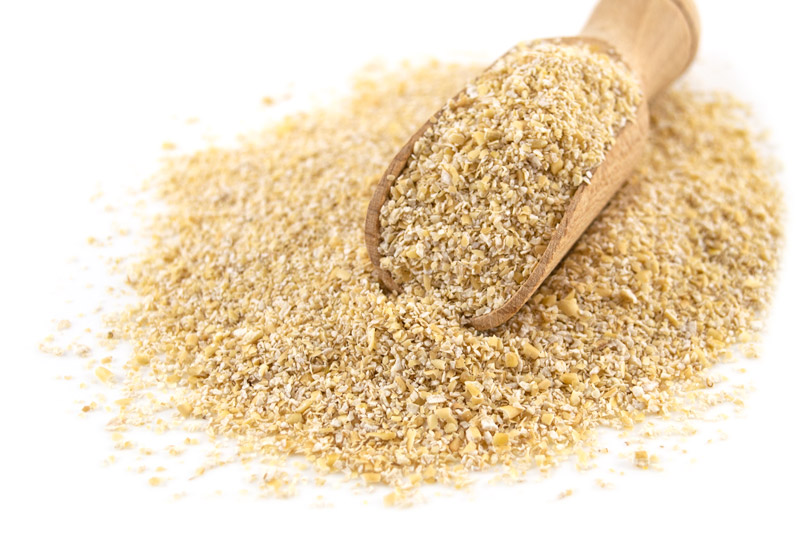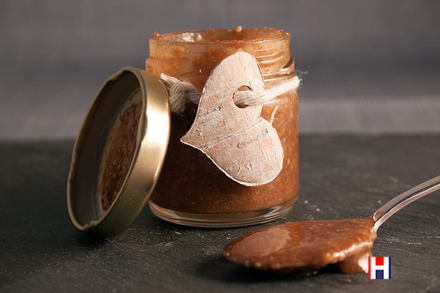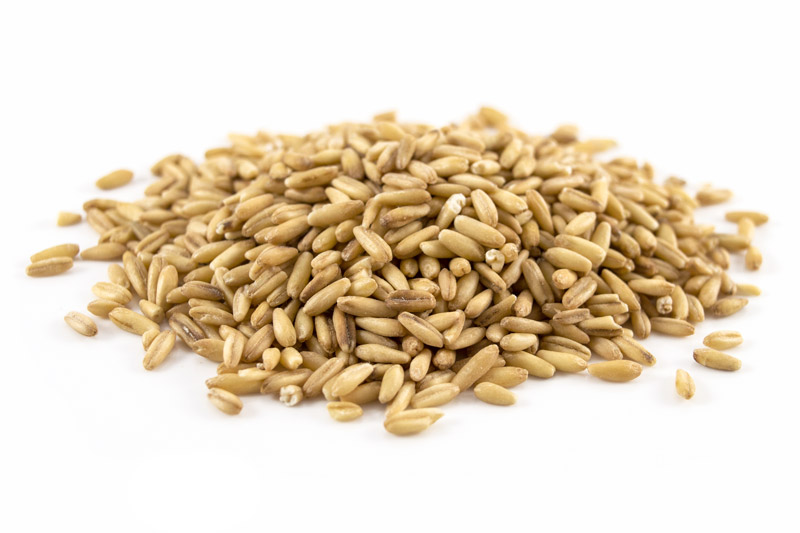The Health Benefits of Oats
Oats are one of the most widely used grains in the world – they’re cheap, plentiful and hugely versatile, forming the main ingredient in a huge number of dishes, both sweet and savoury. On closer examination, they’re also one of the most intriguing foods on the planet.
Oats are a cereal crop, meaning they’re a plant in the grass family which yields an edible grain. This can be purchased in its whole form, often referred to as oat groats, but is more commonly sold ground into oatmeal or flattened into flakes, also known as rolled oats (or porridge oats). They can also be milled into oat flour, which makes a lighter, softer loaf when added to a bread mix. They have an outer layer which is often removed and sold on its own as oat bran. This adds texture to bread and cakes when included in the mix. Oats can even be used to make a wonderful drink which is a great alternative to dairy milk. Oats can also be an excellent alternative to wheat for coeliacs and anyone wanting to avoid gluten, as they’re naturally gluten-free.
But are oats any good for us? Let’s have a look at some of the key points….
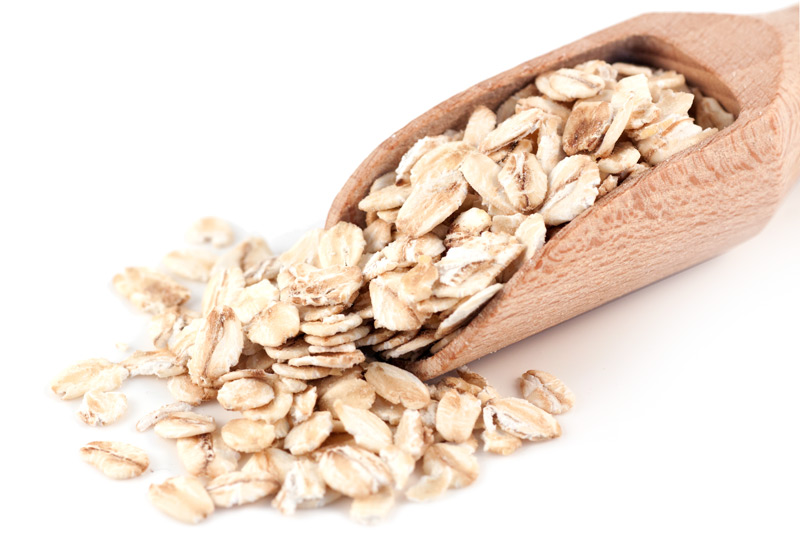
The humble oat is the epicentre of all kinds of amazing plant magic. They’re rammed with vitamin E, which helps keep our skin and eyes in peak condition, and strengthens the body’s natural defences against infection and illness. There’s a great amount of vitamin B1, also known as thiamin, which maintains our nervous system and helps us break down and release the energy from food. One cup of oats will give us all the daily manganese we need – this essential mineral reduces inflammation, keeps our bones healthy, helps our metabolism and improves our brain function. There’s copper, important for heart health; selenium, excellent for immunity; phosphorous, brilliant for maintaining body tissues, and magnesium, which can lower blood pressure, improve physical performance and even reduce depression. Oats also contain various hugely beneficial micronutrients such as folates, zinc, iron, carotenoids, betaine, choline and amino acids.[1] Basically, you’d be struggling to find anything more healthy to eat!
Whole oats contain around 11% fibre, and this includes insoluble fibre such as cellulose, which can relieve constipation, keep food moving through the digestive system and feed our beneficial gut bacteria. Another insoluble fibre in oats is lignin, which can prevent some cancers.[2] However, the majority of fibre in oats is soluble fibre (mostly in the form of beta-glucan), which turns to a gel when it encounters moisture, which means it passes through our stomach more slowly and leaves us feeling fuller for a longer time. This reduces our hunger pangs and also means the energy locked into these wonder-grains is released more slowly over the course of several hours, instead of all in one burst. Eating oat bran can enable you to take full advantage of the fibre in oats, as it’s virtually pure soluble fibre. All of this makes oats one of the very best foods you can eat for breakfast. In a clinical trial in 2015, researchers found that people who’d eaten oatmeal for breakfast felt much fuller and ate around half the amount of calories at lunch as those who’d had a breakfast bowl of cornflakes.[3]
An awesome source of antioxidants
Antioxidants are powerful compounds which fight free radicals, rogue molecules which cause multiple illnesses, including diabetes, heart disease and cancer. The vitamin E found in oats is an example of one of these mighty antioxidants. Another one present in oats is phytic acid, which is recognised as a potent weapon against bowel cancer, the UK’s fourth most common cancer.[4] Also present inside these grains are avenanthramides, which can protect our skin, protect us from ageing and help prevent coronary heart disease.[5] These are concentrated in the oat’s bran, the outer layer of the grain, which is why it’s always a good idea to choose the whole grain where possible.
Wonderful at combating high cholesterol
Beta-glucan, the main type of soluble fibre found in oat grains, has a fantastic effect on the lipids (fat-like particles) in our blood. We need lipids for various biological processes, but if their level is too high, this can cause a buildup on the interior walls of our arteries, significantly raising the risk of stroke or heart attacks. This condition, known as high cholesterol, is significantly reduced by beta-glucan.[6] In a clinical trail in 2013, scientists reported that eating oats reduced total cholesterol by 5%, far more than eating the same amount of rice.[7]
Eating oats may be just as effective as taking medication for diabetes – a report in the Journal of Nutrition and Health in 2019 recommended oatmeal as an effective and economical tool in the treatment of patients suffering from poorly-controlled type 2 diabetes.[8] Another report in the British Journal of Nutrition praised oats as an effective means of lowering blood sugar, and pointed out that this effect was better the less processed the oats are.[9] An analysis of several clinical trials on the subject of how oats affect diabetes concluded that they have beneficial effects on body weight and body mass index and could be recommended to diabetic patients wanting to improve their glucose and lipid profiles.[10]
Oats are wonderful for your all-round general health, but not only internally – They’ve long been used for various beauty applications. As they contain antioxidant and anti-inflammatory compounds, they reduce skin irritation, soothing and restoring it and reducing redness. Oatmeal also has an exfoliating effect on the skin, removing dead skin cells. The natural saponins in oats have a slight foaming quality when they make contact with water, and this has a soap-like effect, gently cleansing the skin and leaving it feeling softer. All these qualities make oatmeal a wonderful ingredient for a hair mask too, if you want to achieve beautiful hair. For an idea of how to use oats in a wonderful face mask recipe, have a look here.
[1]https://www.ncbi.nlm.nih.gov/pmc/articles/PMC4325078/
[2]https://www.ncbi.nlm.nih.gov/pmc/articles/PMC8471765/
[3]https://pubmed.ncbi.nlm.nih.gov/25612907/
[4]https://pubmed.ncbi.nlm.nih.gov/8383315/
[5]https://www.ncbi.nlm.nih.gov/pmc/articles/PMC6126071/
[6]https://www.cambridge.org/core/journals/british-journal-of-nutrition/article/effect-of-oat-glucan-on-ldlcholesterol-nonhdlcholesterol-and-apob-for-cvd-risk-reduction-a-systematic-review-and-metaanalysis-of-randomisedcontrolled-trials/60A75CB215602240E9363D49DCB690ED
[7]https://pubmed.ncbi.nlm.nih.gov/24851570/
[8]https://journals.sagepub.com/doi/10.1177/0260106019874683?url_ver=Z39.88-2003&rfr_id=ori:rid:crossref.org&rfr_dat=cr_pub%20%200pubmed
[9]https://www.cambridge.org/core/journals/british-journal-of-nutrition/article/impact-of-oat-processing-on-glycaemic-and-insulinaemic-responses-in-healthy-humans-a-randomised-clinical-trial/B81334B99F41D96F854D3986D4178592
[10]https://www.ncbi.nlm.nih.gov/pmc/articles/PMC4690088/


